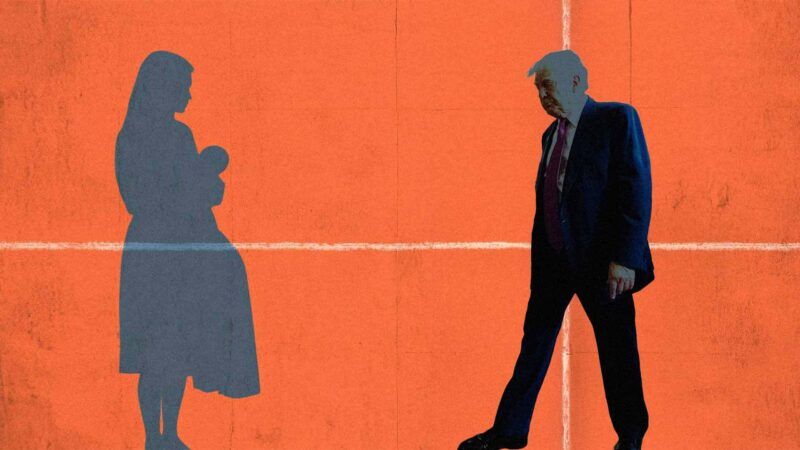Trump Says Birthright Citizenship Is Only 'About the Babies of Slaves.' Historical Evidence Says Otherwise.
The 1866 debate over birthright citizenship included a debate over immigration.

During the recent oral arguments in Trump v. Casa, Solicitor General John Sauer repeatedly defended President Donald Trump's executive order stripping birthright citizenship from millions of U.S.-born children on the grounds that the 14th Amendment "extended citizenship to the children of former slaves, not to people who are unlawfully or temporarily present in the United States." Unfortunately for Sauer and his boss, the historical evidence tells a different story.
You’re reading Injustice System from Damon Root and Reason. Get more of Damon’s commentary on constitutional law and American history.
On May 30, 1866, the U.S. Senate kicked off its debate on the Citizenship Clause of the proposed 14th Amendment, which says, "All persons born or naturalized in the United States, and subject to the jurisdiction thereof, are citizens of the United States and of the State wherein they reside."
The first opponent to speak was Sen. Edgar Cowan (R–Penn.), who objected to the 14th Amendment on the grounds that it would bestow U.S. citizenship on the children of unpopular immigrants. "Is it proposed that the people of California are to remain quiescent while they are overrun by a flood of immigration of the Mongol race?" Cowan demanded. "Are they to be immigrated out of house and home by Chinese?"
Cowan also worried about the presence of "Gypsies" in Pennsylvania. "They wander in gangs in my State," he declared. "These people live in the country and are born in the country. They infest society." Are their children also to be granted birthright citizenship by the language of the amendment? "If the mere fact of being born in the country confers that right," Cowan complained, "then they will have it; and I think it will be mischievous."
Sen. John Conness (R–Calif.) then rose to speak in response to Cowan. "I beg my honorable friend from Pennsylvania to give himself no further trouble on account of the Chinese in California or on the Pacific coast," he said. "We are entirely ready to accept the provision proposed in this constitutional amendment, that the children born here of Mongolian parents shall be declared by the Constitution of the United States to be entitled to civil rights and to equal protection before the law with others."
Note that Cowan and Conness both agreed on the meaning of birthright citizenship. They only disagreed about whether or not that meaning would produce a welcome result. And note also that their shared original understanding runs counter to the position now advanced by the Trump administration.
In that same 1866 speech, Conness also pointed out that he had already joined a majority of Congress in voting for birthright citizenship once before. "The proposition before us," he said, "relates simply in that respect to the children begotten of Chinese parents in California, and it is proposed to declare that they shall be citizens. We have declared that by law; now it is proposed to incorporate the same provision in the fundamental instrument of the nation."
Conness was referring here to the Civil Rights Act of 1866, which Congress had passed in April over the veto of President Andrew Johnson. Why did Johnson veto it? Among "the provisions I cannot approve," Johnson wrote, was the first section of the law, in which "all persons born in the United States and not subject to any foreign power, excluding Indians not taxed, are declared to be citizens of the United States."
It was bad enough, according to Johnson, that this statutory guarantee of birthright citizenship would make citizens "out of the entire race designated as blacks." In his view, "four million of them have just emerged from slavery to freedom. Can it be reasonably supposed that they possess the requisite qualifications to entitle them to all the privileges and immunities of citizens of the United States?" But Johnson also objected to the fact that the Civil Rights Act would make citizens out of the children of "the Chinese of the Pacific States, Indians subject to taxation, [and] the people called Gipsies." Just like Cowan and Conness, Johnson also understood that birthright citizenship would apply to the U.S.-born children of unpopular immigrants.
Trump may think that birthright citizenship is only "about the babies of slaves." But as these statements from the 1866 debates make clear, the historical evidence proves him wrong.


Show Comments (178)